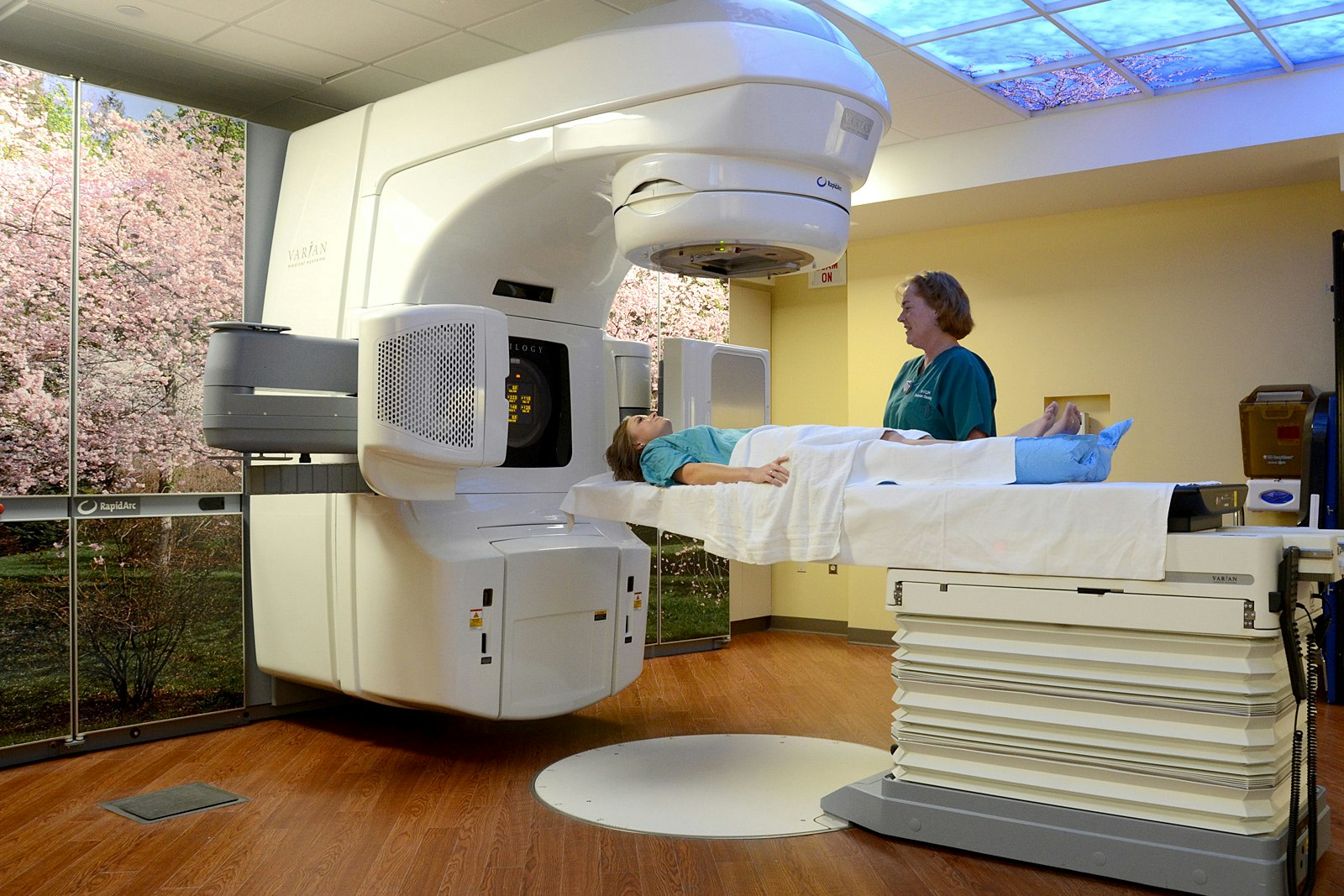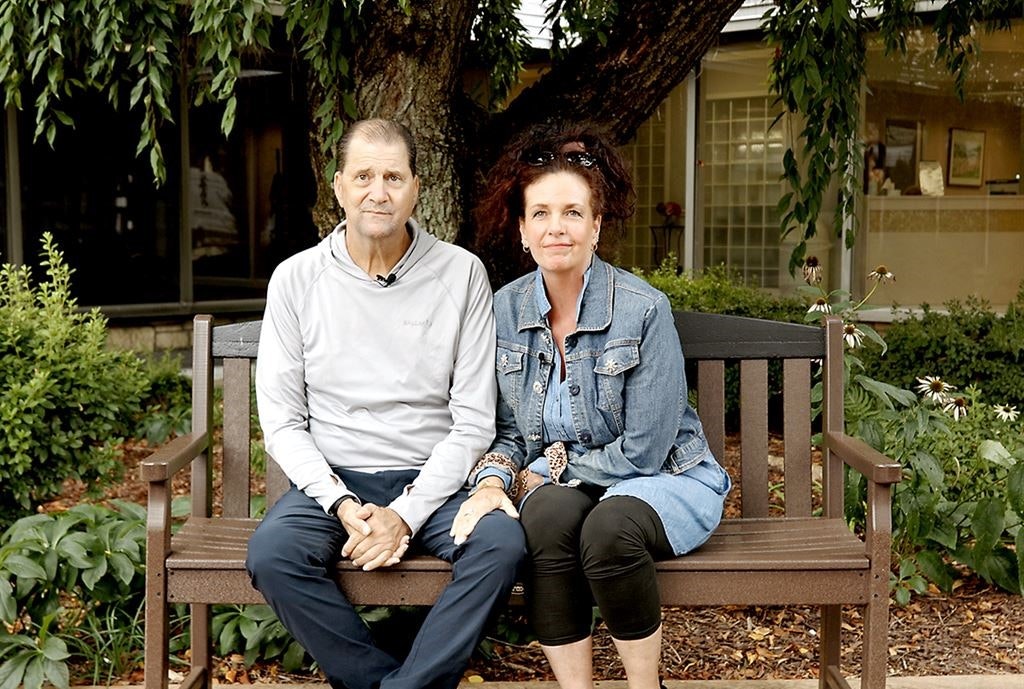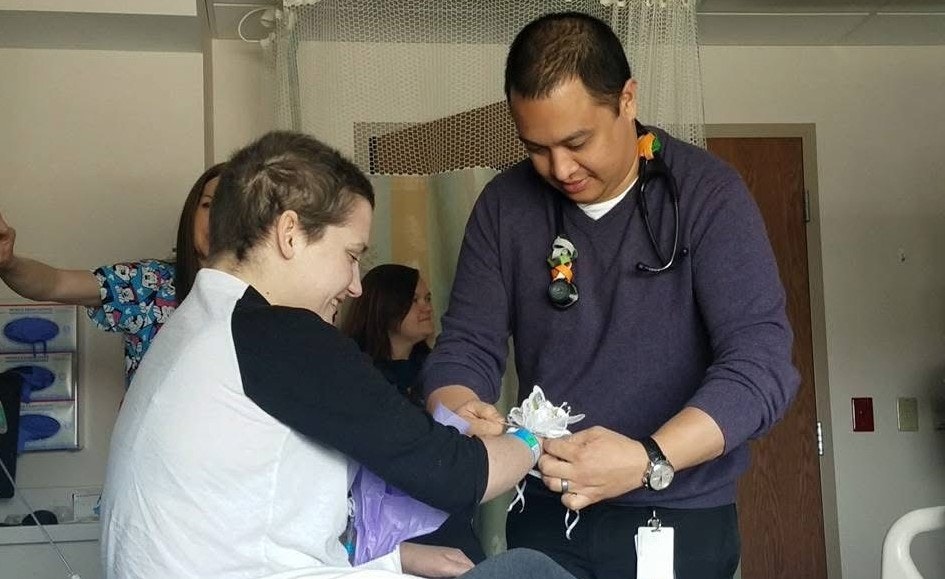
Genitourinary cancers affect the urinary tract and male reproductive system, including the kidneys, adrenal glands, ureters, bladder, prostate, urethra, penis, and testicles.
At the WVU Cancer Institute, our urologic oncology team specializes exclusively in the diagnosis and treatment of these cancers. We offer comprehensive, compassionate care using the latest technologies and therapies in state-of-the-art facilities.
A cancer diagnosis is life-altering. At WVU, you’ll find a multidisciplinary team dedicated to guiding you through treatment with expertise, innovation, and support—helping you find hope and healing every step of the way
We’re proud to have been nationally recognized as high performing by U.S. News & World Report for our Prostate Cancer Surgery program.
Types of Urologic Cancers We Treat
The WVU Cancer Institute has a comprehensive team that brings together board-certified surgeons, urology specialists, medical oncologists, and other medical professionals with expertise in urologic cancer. The team designs a treatment plan customized to your specific type of cancer and your needs.
Our urologic oncology program provides expert care for a wide range of cancers.
Bladder cancer
Bladder cancer most often arises from the inner lining (urothelium) and typically presents with blood in the urine. Early-stage tumors may be treated with endoscopic surgery and intravesical therapies, while advanced cases may require cystectomy and systemic treatments.
Kidney (renal) cancer
Kidney cancers, such as renal cell carcinoma, often present incidentally on imaging. Treatment typically involves surgery (e.g., partial or radical nephrectomy), with systemic therapies used in advanced or metastatic cases.
Penile cancer
Though rare, penile cancer can be serious and often presents as a lesion or mass. Most cases are squamous cell carcinoma. Treatments range from topical therapies to surgery (including partial or total penectomy), with consideration for lymph node evaluation.
Prostate cancer
One of the most common cancers among men, prostate cancer ranges from slow-growing tumors to aggressive disease. Treatment varies based on risk and may include active surveillance, surgery, radiation, hormone therapy, or newer agents like Pluvicto™ for advanced disease.
Testicular cancer
A rare cancer that most commonly affects younger men, testicular cancer typically originates from germ cells. It is highly curable, even when spread, and treatment often includes surgery (radical inguinal orchiectomy), with chemotherapy or surveillance as needed.
We also treat less common cancers such as adrenal tumors and urethral cancers, often requiring individualized, complex multidisciplinary care.
Diagnosing Urologic Cancers
There are different ways to diagnose urologic cancers. It depends on which type of cancer is suspected. However, because urologic cancers may not have symptoms in the earlier stages, early diagnosis can be difficult. Talk to your doctor right away if you notice any new symptoms such as pelvic pain, weak urine stream or trouble with urination, erectile dysfunction, blood in the urine, or blood in the semen.
We use the latest diagnostic tests to diagnose urologic cancers and create a personalized plan for your care. These diagnostic tools include:
- Advanced imaging — Doctors use the latest technology to detect signs of disease and see whether cancer has spread to other parts of the body, such as the lymph nodes. These diagnostic imaging tools include transrectal ultrasound (TRUS), which takes images of the prostate gland; computed tomography (CT); magnetic resonance imaging (MRI); and positron emission tomography (PET). J.W. Ruby Memorial Hospital is the first location in West Virginia to offer a FDA-approved prostate-specific membrane antigen (PSMA) imaging agent, called PYLARIFY®, to evaluate patients with prostate cancer during a PET-CT scan.
- Biopsy — If an imaging test shows an abnormal area, doctors will biopsy tissue and examine it under a microscope to learn whether cancer is present. During a biopsy, a doctor removes a small sample of tissue at the site to analyze in a lab. Biopsy results help oncologists plan the best treatment for you. Several different biopsy types include incisional biopsy, excisional biopsy, lymph node biopsy, and fine-needle aspiration.
- Digital rectal exam (DRE) — This test detects lumps, enlargements, or hard areas in the prostate and may help detect prostate cancer.
- Lab, tumor marker, and urine tests — To help diagnose and plan for treatment, certain lab tests look at any changes in genes, chromosomes, or proteins. We use urine tests, such as urine cytology, to see if there are any cancer or precancerous cells in the urine. Different urine tumor marker tests, such as NMP22, Immunocyt, or BTA Stat, are used to measure specific levels of a chemical made by bladder cancer cells.
- Physical exam — Doctors conduct a health history and use a physical exam to look for signs of something going on in your body such as the presence of a tumor. Your doctor may recommend exams to check the health of the penis, prostate, bladder, kidney, or testicles.
- Prostate-specific antigen (PSA) density test — The PSA is an enzyme that the prostate gland produces. When the prostate gland is enlarged or diseased, higher levels of PSA can be found. The PSA test is the most effective test used to detect early prostate cancer.
- Renal angiography — This is an x-ray test using an injection of a contrast dye placed into the kidney’s blood vessel. This test is used as part of a CT or MRI scan to see if the kidney’s blood supply is affected by an abnormality or blockage.
Treatment for Urologic Cancers
Starting with your very first visit, our team works with you to address your specific condition and needs. Our goal is to treat cancer at its earliest stage. Because this isn’t always possible with some urologic cancers, our goal is to form a plan to remove cancer when possible or prevent cancer from growing. Your treatment approach will depend on the type of tumor and its stage. Your care plan may include:
- Arterial embolization — This is a procedure used to block the blood supply to a tumor. Doctors make a small cut in the inner thigh and insert a thin, flexible tube into an artery near the tumor. Once in place, small particles made of tiny gelatin beads are injected and help block or stop the tumor’s blood flow.
- Cryoablation — This type of treatment uses extreme cold to destroy tumors in the kidney. Doctors use a hollow needle inserted into the tumor site to deliver cold gases such as nitrogen.
- Medical oncology — Medical oncology includes chemotherapy, immunotherapy, targeted therapies, and hormone therapy. Our doctors use the latest in anti-cancer medicine to destroy cancer cells. We also use medicines to slow cancer growth and shrink tumors before surgery. Sometimes, we use medication alongside other treatments such as radiation or after surgery to destroy any cancer cells that might remain.
- Palliative surgery — Our surgeons use different palliative surgery approaches when cancer has spread and can’t be removed. These surgeries may relieve symptoms and improve quality of life.
- Pluvicto™ - Radiation oncologists at the WVU Cancer Institute are the first in West Virginia to implement PluvictoTM (lutetium Lu 177 vipivotide tetraxetan), a new treatment for metastatic prostate-specific membrane antigen-positive metastatic castration-resistant prostate cancer (PSMA-positive mCRPC), which has spread to other parts of the body and has been resistant to other treatments.
- Radiation oncology — We use radiotherapy treatments to target, destroy, and shrink cancer. The treatments use a linear accelerator to produce precise, high-energy rays that target the exact area of cancer and spare healthy cells.
- SpaceOAR® (Spacing Organs at Risk) Hydrogel — SpaceOAR® is an FDA-cleared, biodegradable gel that is injected between the prostate and rectum prior to radiation therapy. By creating a temporary space, it helps reduce the radiation dose to the rectum, minimizing potential side effects such as pain, bowel issues, and long-term damage.
- Surgery — Surgery can help us diagnose, stage, and treat many tumors. We use surgery to take a biopsy of a tumor or to help prevent or treat symptoms. Our surgeons can perform surgery to remove any visible signs of cancer in the affected organs. Based on the type of urologic cancer, we offer the most innovative approaches to treat it, including robotic partial nephrectomy (removal of part of the kidney), penectomy (removal of part of the penis), robot-assisted laparoscopic surgery, and radical inguinal orchiectomy (to remove a cancerous testicle).
- Targeted therapy — Targeted therapy is the foundation of precision medicine. This type of cancer treatment targets proteins that control how cancer cells grow, divide, and spread. As researchers learn more about the DNA changes and proteins that drive cancer, they are better able to design promising treatments that target these proteins.
Resources for Urologic Cancers
We believe cancer care goes beyond the medical diagnosis and treatment. That’s why you can access many resources that may help answer questions and connect you to others.





